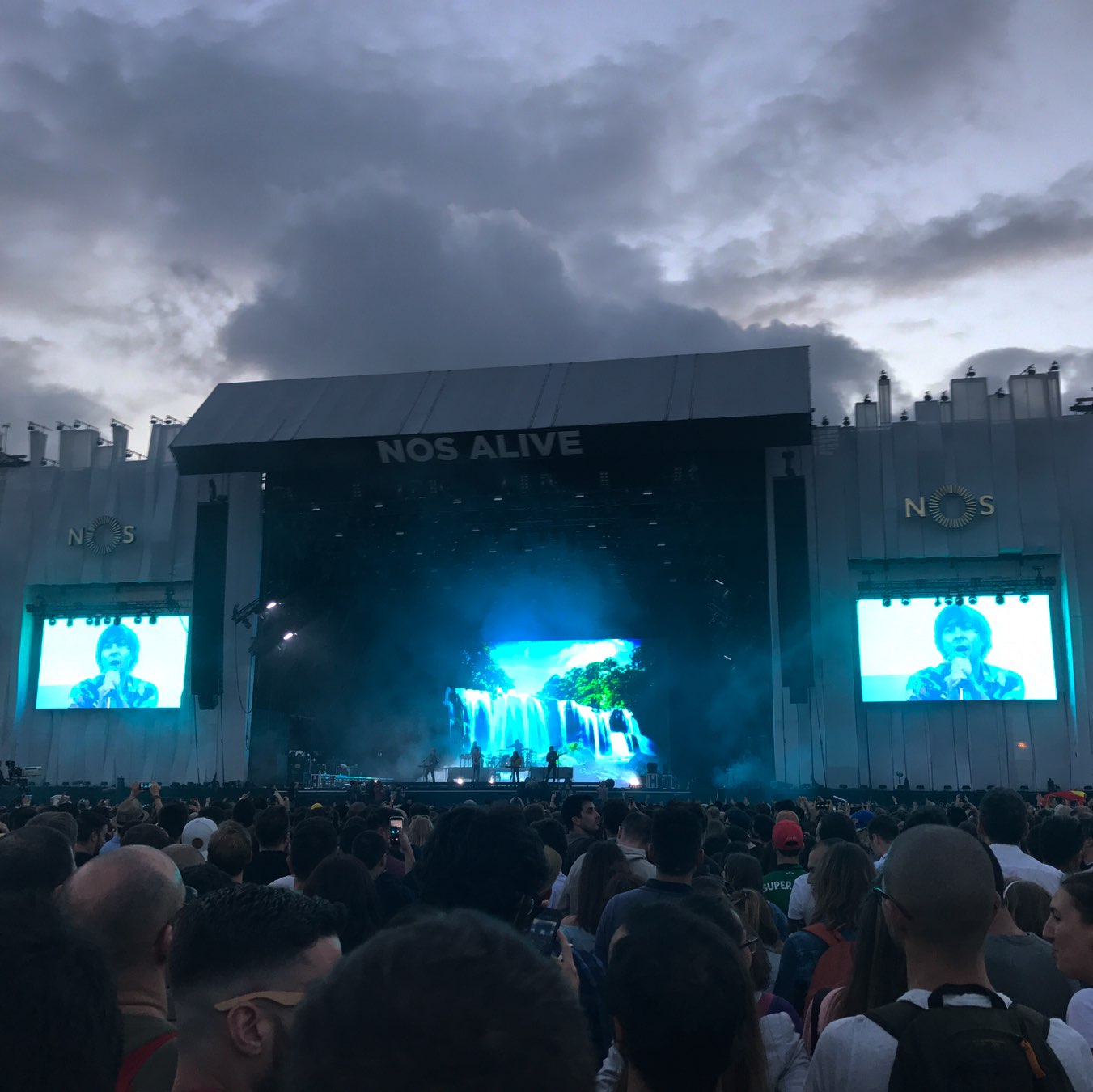“…I try and create situations where accidents happen, and Pro tools is brilliant for this - it’s an amazing sort of creative tool.” - Neil Halstead, Slowdive, at 8:45 in this Song Exploder episode.
Monthly Archives: July 2017
Subscription Pricing
Michael Tsai has a great write up regarding the recent move by Day One towards subscription pricing. I completely agree with his conclusion that substantial price increases, combined with a change in the payment mode, are leading to confusion regarding the source of the backlash.
My hunch is that, for an app under ongoing development, many people would be fine paying a subscription that averages out to about the same amount they had previously been paying per year (initial purchase plus occasional upgrades). When I hear that an app is switching to a “sustainable model,” this is what I assume people mean is happening.
[…]
But that doesn’t seem to be what’s been happening. Instead, we’ve seen subscriptions combined with price increases, customers balking, and insinuations that people just don’t want to pay for anything anymore. With more than one variable changing at once, I don’t think we can conclude that people hate subscriptions.
Michael also recently summarized the 1Password backlash regarding their move towards subscription pricing.
Michael’s conclusion resonates with me because I’ve chosen not to sign up for some subscriptions exactly because of the price increases. Here’s where I stand on each of the examples he calls out:
- Day One 2: I don’t know what I spent on this back in 2012, but I was happy to pay $50 early last year when version 2 shipped — this app is easily worth $12.50/year to me. Unfortunately, due to their sync restrictions, I didn’t migrate to version 2 until they shipped version 2.2, which included end-to-end encryption. I still feel a bit burned that I had to wait nearly 15 months for a feature they promised at launch. Even with the 50% discount they’re offering current customers, Day One Premium at $25/year is a 100% price increase over what I’ve previously spent, in exchange for “the ability to create more than ten journals” (I have one) and “access [to] all future premium features”. I’ll reconsider if there’s a compelling future feature, but for now, no thank you.
- 1Password: I don’t know that I’ve ever paid for an update after my original Mac and iPhone purchases, but I know that I use this app dozens of times each day. When they offered their Family Day Special, I jumped onto their subscription plan. The value here is very obvious to me, and if I can make use of 1Password free to the rest of the family, that helps keep us all safe.
- TextExpander: I’m still running version 5. I enjoy this app a lot, and especially appreciate their long-running support of Back to Work, but doubling the price was a bridge too far for me. When version 5 and the equivalent iOS app stop working for me, I plan to move my simple snippets into Apple’s native solution, and I’ll follow Dr. Drang toward Keyboard Maestro for my more complex snippets. I’ll miss some of Brett’s TextExpander Tools, though.
- Lightroom: I thought about buying this when I finally picked up a nicer camera last year, but the value for the subscription wasn’t obvious. I’ve been making do with Apple Photos and some wonderful external editors. With native support for third-party editors returning in High Sierra, I doubt I’ll reconsider this choice.
- Microsoft Office: Both my wife and I have licenses through our employers that allow for installation on a home machine, so we haven’t even had to think about this. If I lost access to that, I would be fine, but my wife would need to subscribe. For $70/year, I think she would get tremendous value from this subscription.
The bottom line is that I’ve fine with subscriptions when the price matches the value. Combining a price increase with the change in payment model will force me to reconsider the value, and I may or may not subscribe.
File under Things I Can Never Remember about Core Audio: 1 Frame == 1 Sample * N Channels
Net Neutrality
Per this Ars Technica article, I just filed my comments with the FCC regarding net neutrality. Feel free to crib from my comments to post your own:
I believe that broadband ISPs are ‘telecommunications services’, subject to Title II oversight.
I build mobile applications that rely on open access to the internet for their success, and I distribute music online. If ISPs are allowed to prioritize traffic, my uses of the internet are at risk of being substantially de-prioritized.
When I purchase broadband internet service from my ISP (Charter / Spectrum), I am paying for only that: a fast connection to the internet. While my ISP does include some free services such as an email account and security suite with my internet subscription, I do not use or want these features. I would decline to purchase them if that were an option. I pay for my own email account through fastmail.fm, cloud storage through dropbox.com, web hosting at digitalocean.com, and I manage my own security.
I believe my use of the broadband service I purchase fits the definition of “the transmission, between or among points specified by the user, of information of the user’s choosing, without change in the form or content of the information as sent and received” because I specify all of the services (points) I want to use, I choose the information to be transmitted, and I expect that the broadband service provider not to change the form or content of this information.
I have only one choice of broadband provider in my location. If the FCC waives its authority over broadband ISPs, I would be left at the whim of our provider regarding quality and price of service.
Please uphold the 2015 determination that broadband ISPs are ‘telecommunications services’ subject to greater oversight under Title II.
This is a great write up on self-reporting encryption exporting: Supertop Blog: Reporting App Encryption use to the US Government
Looks like my iMac hinge failed; fortunately Apple is fixing it under this warranty extension program: Apple Offering Refunds to Customers Who Paid for iMac Hinge Repairs - Mac Rumors
AT&T - Social Engineering
Justin Williams was the victim of an AT&T social engineering attack:
I instantly called AT&T’s customer service line to explain what is happening. I give them my name, my phone number, and my security passcode (this is key). The man on the phone reads through the notes and explains that yes, someone has been dialing the AT&T call center all day trying to get into my phone but was repeatedly rejected because they didn’t know my passcode, until someone broke protocol and didn’t require the passcode.
One of my co-workers reported this happening to him about three weeks ago (although he didn’t have any money stolen, to my knowledge). This is terrifying, and AT&T needs to address this.
Justin adds:
I’ve been told this is being escalated internally, but I haven’t heard anything from corporate channels, so I remain skeptical until I see or hear something.
I share his skepticism. This hole has existed for years, and AT&T has failed to patch it. I feel terrible for the situation Justin has ended up in, and I’m equally upset by the sense that I don’t have a way to protect myself from an attack like this.
Extra Security
I’ve had Extra Security enabled on my account for a long time, but it doesn’t seem like that would have helped me in this situation at all. From this page, the AT&T documentation says:
Benefits of extra security Without extra security, you or someone you authorize may need your wireless security passcode only in these situations:
- Calling AT&T Customer Care.
- Changing the passcode.
- Managing your account in some retail stores.
When you add extra security to your wireless account, you or someone you authorize may need your wireless security passcode in these additional situations:
- Managing your wireless account online.
- Gaining secondary online access to the wireless account.
- Managing your account in any retail store.
Extra Security doesn’t seem to change any of the requirements when calling in for support.
Additionally, every time I log in to their website, there’s a checkbox below the textfield for the passcode. On a site with normal 2-factor support, that checkbox says something like “Don’t require 2-factor on this machine for 24 hours”. On AT&T’s site, it says “Disable Extra Security”. I almost check this box every damn time, and have disabled it a few times.
Ryan Adams @ NOS Alive

NOS Alive!
